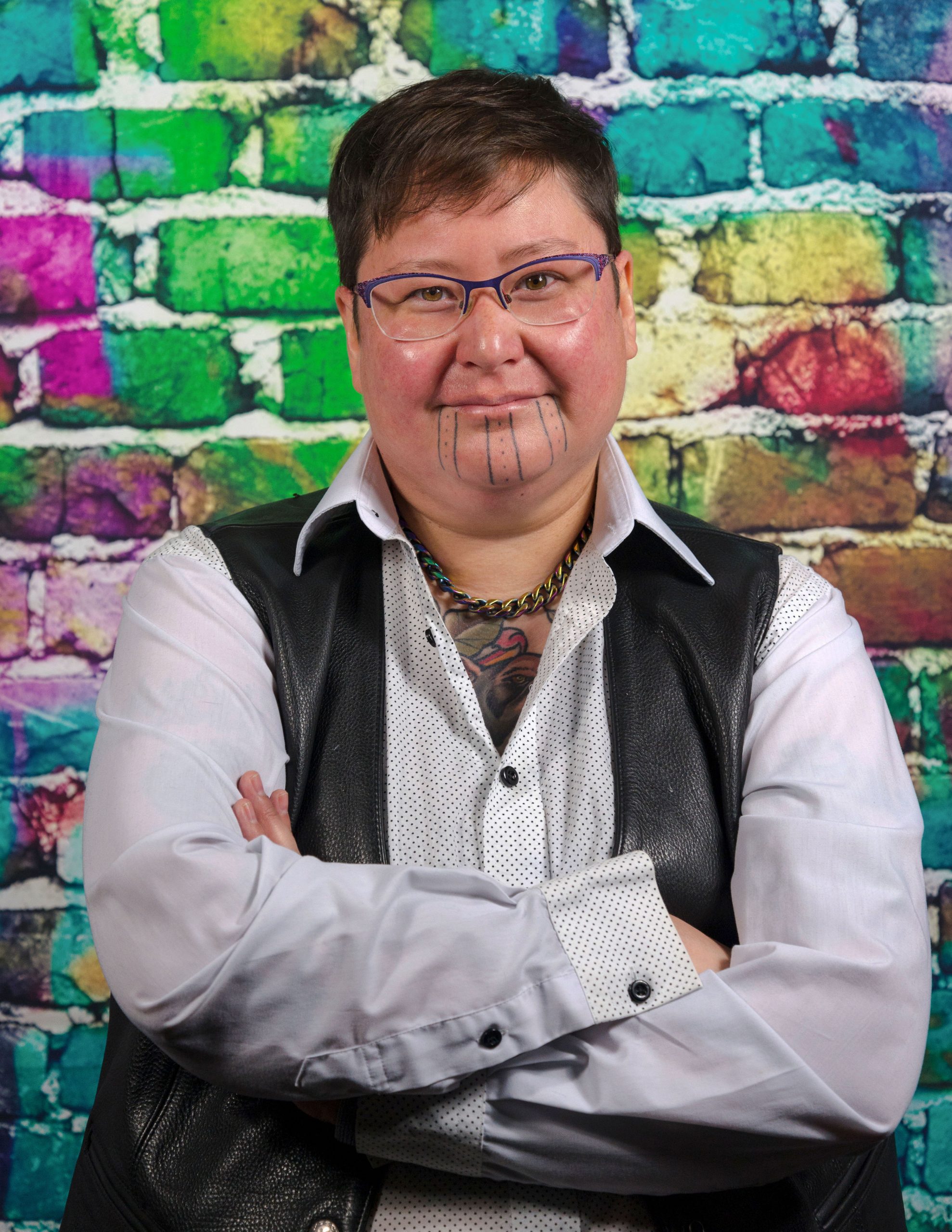TJ Cuthand (TJC): I think maybe (laughs) maybe even like as far back as when I was a kid and I saw ET and there was just like, all of the special effects they did, and when ET got sick I got really scared, and I don't know, I think it was just like growing awareness of how film can sort of manipulate someone's emotions to make them understand something that they didn't understand before. I think that's kind of what I was understanding when I first started seeing movies at cinemas and drive-throughs and stuff like that.
Science World (SW): That’s artist and filmmaker TJ Cuthand. His work has been screened in festivals internationally, and shown at galleries across North America.
TJC: Part of my drive to create work has always been to represent the people who don't get represented for capitalist reasons—people with money want to fund work that has cis straight white men in it and Indigenous queer people not so much.
SW: For over two decades, TJ has been making short videos and films about sexuality, madness, Indigeneity, Queer identity and love.
TJC: There's always this feeling I feel where it's like, ‘How do I talk about trauma without retraumatizing the audience?’ And you know, and ‘How do you.. how do you talk about things that we kind of collectively experience as Indigenous people without you know, I guess telling the secrets?” or I don't know, there's something... there's a very protective feeling I do have towards my community. So, I think there's definitely things I've edited out of videos—that I haven't, you know, presented in the end.
SW: Many of TJ’s films address serious issues so he tries to present them with humour. His film, Two-Spirit Dream Catcher Dot Com, uses the style of a lavalife commercial to sell a dating website for Two-Spirit people.
TJC: I really wanted that piece to be about Indigenous joy and Two-Spirit joy because I noticed so many... I don't know, I mean, I was a programmer for a Queer Film Festival for a while and I noticed there were so many videos that were either, kind of like, you know, “Two-Spirit 101” or else like “Two-Spirit trauma” and I just, I don't want to be, you know, I don't want younger Two-Spirit people to think that their life is always going to be about trauma because it's not. There's good things about being Two-Spirit.
SW: When creating films, TJ considers how members of his community will feel when watching them. He hopes they find joy at the centre of his films.
TJC: I always want that community to know that they're loved and desired and that they're important. I mean, I think... I think what I think about a lot, when I think about community is, I always wonder what's this gonna mean to the, you know, the Two-Spirit kid who's on an isolated reserve. And, you know, maybe has really slow internet or maybe no internet at all. And, you know, is seeing this in, you know, the band hall or something. You know, how is that kid gonna relate to this art?
SW: It’s one of TJ's hopes that his films can be a place where people from his community go to find belonging and to feel the infinitude of Indigenous and Two-Spirit joy.
TJC: I think art sort of envisions a different world. You know how people say they want to change the world with their art? I think I still kind of take that as part of my practice—that I want people to think of issues differently after they see a piece of mine. Yeah, I want to open minds and you know (laughs) and make a better world and I think that's still something I really try to aspire to, I guess, with my filmmaking.

